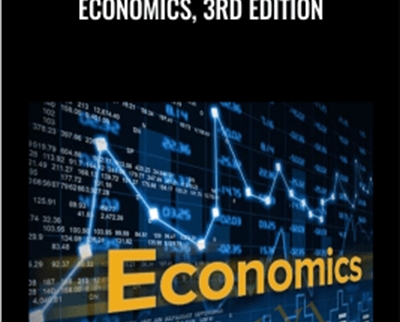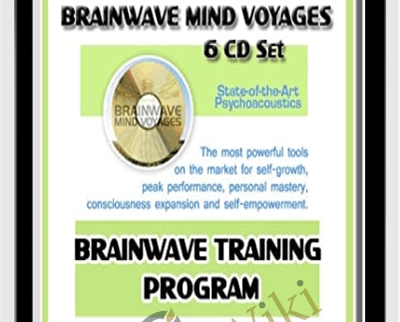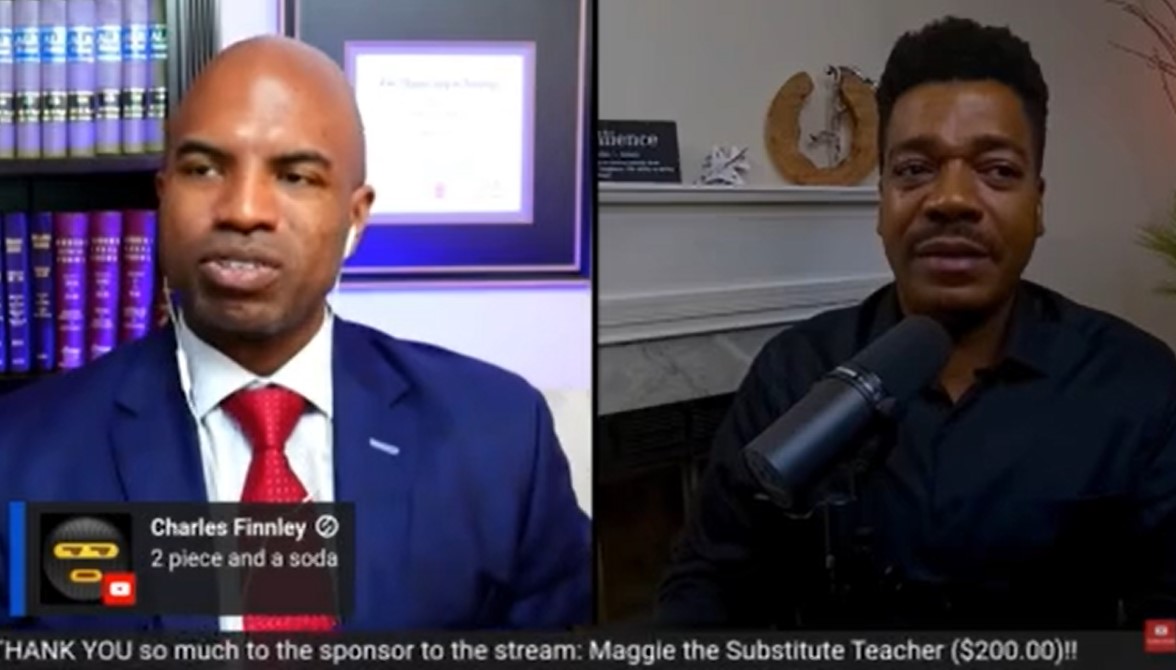Economics, 3rd Edition – Timothy Taylor, M.Econ
Original price was: $319.95.$45.00Current price is: $45.00.
Economics, 3rd Edition – Timothy Taylor, M.Econ Download. We are all economistswhen we work, buy, save, invest, pay taxes, and vote. It repays us many tim…
Salepage link: At HERE. Archive: http://archive.is/ltLLO
We are all economists—when we work, buy, save, invest, pay taxes, and vote. It repays us many times over to be good economists. Economic issues are active in our lives every day. However, when the subject of economics comes up in conversation or on the news, we can find ourselves longing for a more sophisticated understanding of the fundamentals of economics.
- How can I get an overview of the entire U.S. economy?
- Why do budget deficits matter?
- What exactly does the Federal Reserve do?
- Why do most economists favor international trade so strongly?
Economics, 3rd Edition, will help you think about and discuss these and other economic issues that affect you and the nation every day—interest rates, unemployment, personal investing, budget deficits, globalization, and many more—with a greater level of knowledge and sophistication.
Designed for those who haven’t already purchased our 2nd Edition economics course, this enlarged and reorganized 3rd Edition includes updated statistics and discussions of more recent events. It also features expanded coverage in areas of great public interest, such as anti-trust issues, corporate responsibility, and international financial crashes.
Master the Basics of Economics
These lectures require no special or advanced knowledge of mathematics. Instead, you will learn economics through intuitive explanations and in plain English, from an instructor who has won teaching awards at Stanford and the University of Minnesota.
Professor Timothy Taylor’s first 18 lectures focus on “microeconomics,” or looking at economics “from the bottom up.” You will study the behavior of individuals, households, and firms; and how they interact in markets for goods, labor, and saving and investment. Topics in microeconomics include:
- How does supply and demand operate in the free market to determine the prices of the goods we buy and the salaries we are paid?
- How are interest rates determined? And what effects do they have on so many decisions we make—such as what house we will buy?
- How do businesses compete with one another? What is a natural monopoly? What role does government have to play in encouraging and regulating competition?
- Defining “public goods”—things like national defense and education—that we all benefit from whether we contribute to them or not. The difficulty of encouraging citizens to support production of public goods can be understood through a game theory problem known as the prisoner’s dilemma.
The second half of the course covers “macroeconomics,” or studying the economy “from the top down.”Here you will examine the factors that help economists evaluate the economy on a national and global scale. Among these macroeconomic issues are:
- Common ways the government taxes and spends, and how these actions affect the total demand and supply in our economy
- The relationship between employment and inflation, and the different perspectives on this problem advanced by the two main schools of economic theory—the Keynesians and the neoclassicists
- International economics: What are the arguments for and against international trade? How are exchange rates determined and what do they really mean to us as individuals and the economy in general? What are the future prospects for the global economy—which nations are likely to do well and which will lag behind?
Throughout this course, Professor Taylor helps you apply what you are learning to many of today’s most frequently discussed and misunderstood issues. Has the world economy become truly borderless, and does globalization take jobs away from American workers? Why do markets for car and health insurance often seem so costly and controversial? What are our prospects for heading off the Social Security and healthcare crises that loom in the coming decades?
Get Economics, 3rd Edition of author Timothy Taylor, M.Econ only price 67$
Learn to Think Like an Economist
One of the 20th century’s top economists, John Maynard Keynes, once said, “Economics is a method rather than a doctrine, an apparatus of the mind, a technique of thinking which helps its possessor to draw correct conclusions.”
You will learn that economics is essentially a way of thinking about big problems that face our society, and that economists sometimes think very differently about these issues than the rest of us do. You will practice thinking like an economist about a succession of topics that are in the news virtually every day, such as:
- Is it realistic to view pollution as a moral wrong, as some environmentalists do, and try to eliminate it completely? Or can pollution actually have benefits? What would we have to give up if we tried to totally eradicate pollution?
- How should the government decide whether or not to block a proposed corporate merger?
- Should we control rents so that people can afford housing? Or should government subsidize low-income housing, or offer families rent vouchers? Which strategy would an economist favor? Which would a politician most likely choose?
In these lectures, you will appreciate the difficulties involved in formulating economic policies that are both effective and satisfying to everyone—consumers and businesses, Republicans and Democrats, rich and poor.
Economics Everywhere: From Cowrie Shells to Edison, from Mohair to Mickey Mouse
Economics isn’t just about numbers: It’s about politics, psychology, history, inventions, and countless other aspects of human endeavor. As a result, it never lacks for interesting, surprising, or amusing content. The following are a few of many examples:
- Thomas Edison’s first invention was an automatic vote-counting machine. But he found he couldn’t sell it, so he vowed only to make inventions people would buy.
- The idea of using a “basket of goods” to measure inflation goes back a long time. During the Revolutionary War, Massachusetts paid its soldiers the amount of money that would buy the following basket of goods: 5 bushels of corn, 68 and four-sevenths pounds of beef, 10 pounds of wood, and 16 pounds of leather.
- The first federal minimum wage law, passed in 1938, was intended to keep jobs in northern United States from flowing to the south, where wages were much lower. It intentionally put millions of low-skilled black workers in the south out of work.
- The item that served as money over the broadest geographic area and the longest period of time was the cowrie shell. It was in use as early as 700 B.C. in China and was subsequently used in India, Africa, and southern Europe. It was an acceptable way to pay taxes in some African nations well into the 20th century.
- The argument that a product should be protected against foreign imports because it is vital to national security is often abused. In the 1950s, the American mohair industry successfully argued for protection—which exists to this day—on the basis that military uniforms contained mohair and without support for the industry American soldiers risked going to battle naked.
In other lectures, you will learn how various ways to measure and analyze the economy were first developed—for example, how America’s first statistical definition of poverty was formulated by one person, Social Security Administration employee Mollie Orshansky, in the 1960s. Professor Taylor takes you through the intricacies of patents, copyrights, and product advertising, with examples ranging from America’s top corporations to Sonny Bono and Mickey Mouse. You will even see that economic analysis can be applied to behavior that doesn’t seem related to economics at all, such as why so many Americans don’t vote.
Be an Economics Conversation Starter. Or Stopper.
If you complete this course and devote some thought to its subject matter, you’ll be able to hold your own any time the discussion turns to economics, whether it’s at your office, in the news, or at the dinner table.
If you hear someone say, for example, “A tax on gas could be a good way of encouraging people to drive less,” you’ll be able to add, knowingly, “Perhaps, but of course, it all depends on the elasticity of demand for gasoline.”
“I should warn you though,” Professor Taylor says, from personal experience, “that comments like this can either lead to a really much more intelligent and informed conversation, or they can lead the conversation to an abrupt and uncomfortable halt.”
Please note:
This course is not intended to provide financial or investment advice. All investments involve risk: Past performance does not guarantee future success. You acknowledge that any reliance on any information from the materials contained in this course shall be at your own risk.
What Does Each Format Include?
INSTANT VIDEO INCLUDES:
- Download 36 video lectures to your computer or mobile app
- Downloadable PDF of the course guidebook
- FREE video streaming of the course from our website and mobile apps
DVD INCLUDES:
- 36 lectures on 6 DVDs
- 208-page printed course guidebook
- Downloadable PDF of the course guidebook
- FREE video streaming of the course from our website and mobile apps
What Does The Course Guidebook Include?
COURSE GUIDEBOOK DETAILS:
- 208-page printed course guidebook
- Suggested readings
- Questions to consider
- Glossary
Here's an overview of the prominent keywords and a list of famous authors:
Business and Sales: Explore business strategies, sales skills, entrepreneurship, and brand-building from authors like Joe Wicks, Jillian Michaels, and Tony Horton.
Sports and Fitness: Enhance athleticism, improve health and fitness with guidance from experts like Shaun T, Kayla Itsines, and Yoga with Adriene.
Personal Development: Develop communication skills, time management, creative thinking, and enhance self-awareness from authors like Gretchen Rubin, Simon Sinek, and Marie Kondo.
Technology and Coding: Learn about artificial intelligence, data analytics, programming, and blockchain technology from thought leaders like Neil deGrasse Tyson, Amy Cuddy, and Malcolm Gladwell.
Lifestyle and Wellness: Discover courses on holistic health, yoga, and healthy living from authors like Elizabeth Gilbert, Bill Nye, and Tracy Anderson.
Art and Creativity: Explore the world of art, creativity, and painting with guidance from renowned artists like Bob Ross and others.
All the courses on WSOlib are led by top authors and experts in their respective fields. Rest assured that the knowledge and skills you acquire are reliable and highly applicable.
Specification: Economics, 3rd Edition – Timothy Taylor, M.Econ
|
User Reviews
Only logged in customers who have purchased this product may leave a review.

Original price was: $319.95.$45.00Current price is: $45.00.












There are no reviews yet.